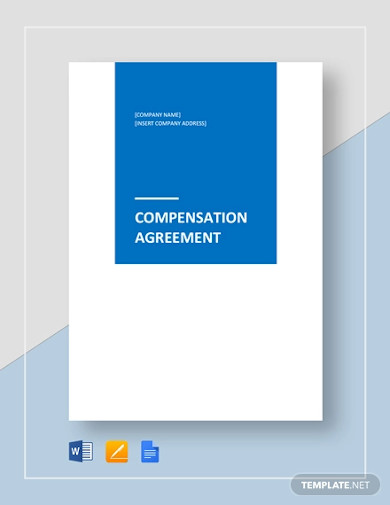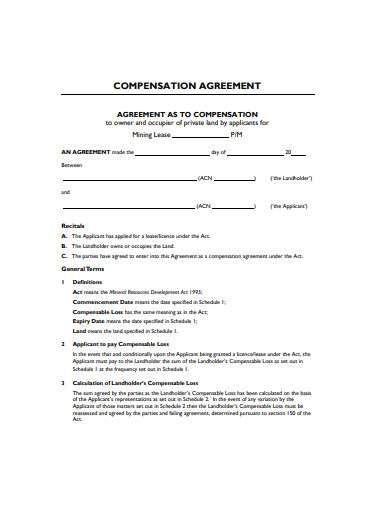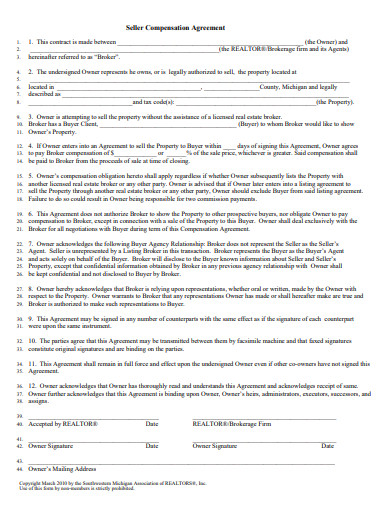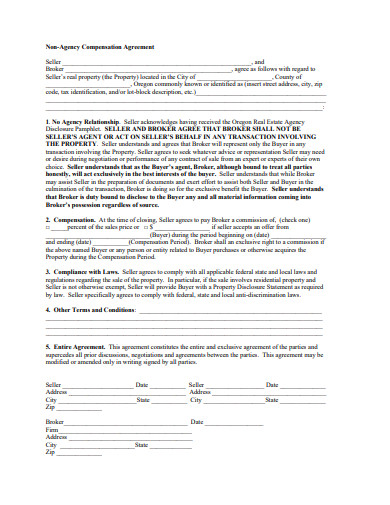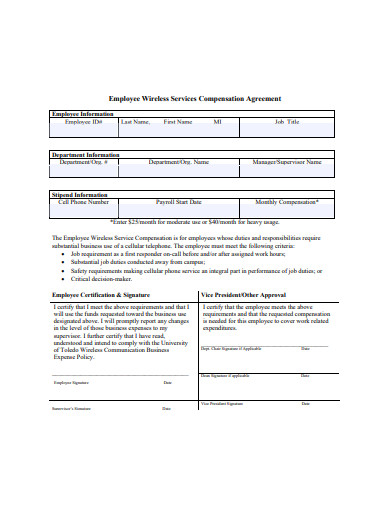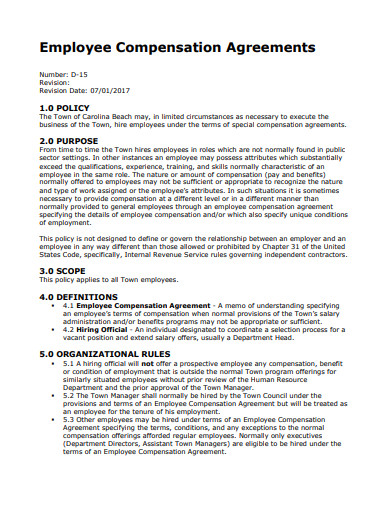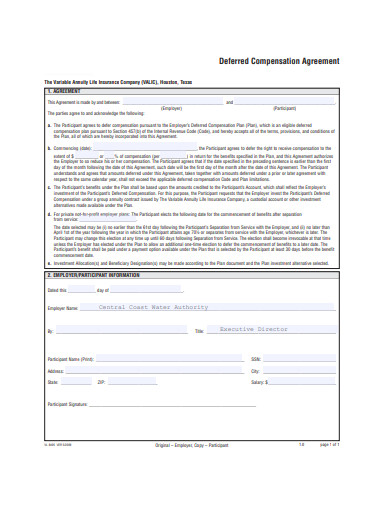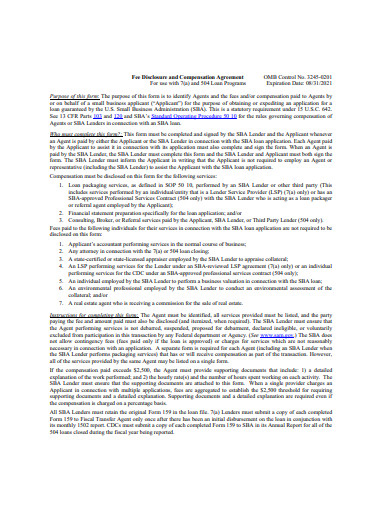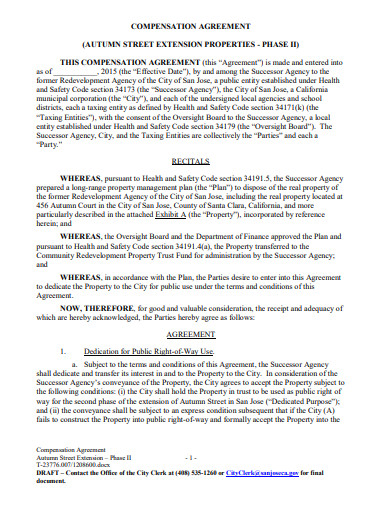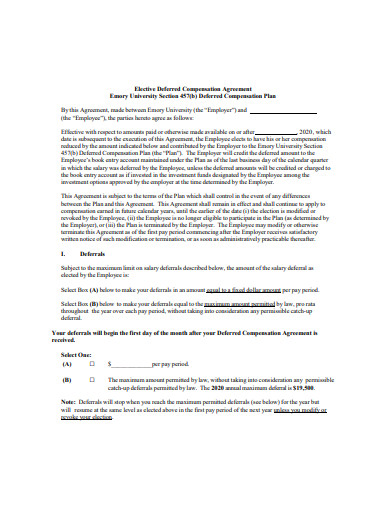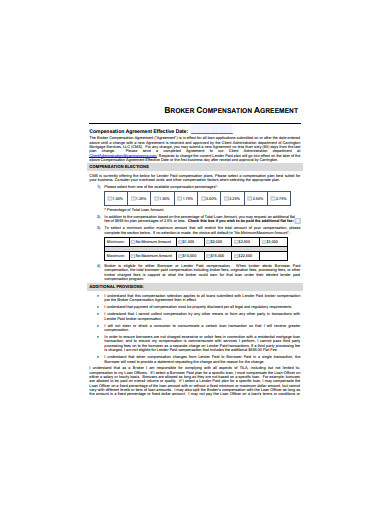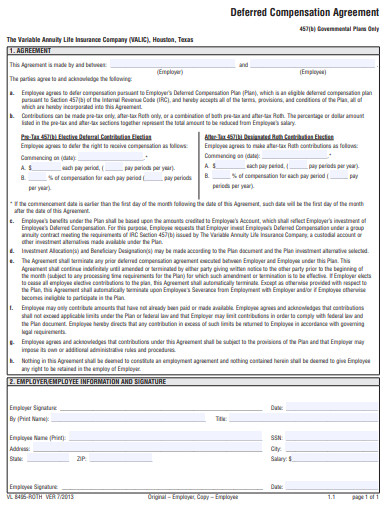11+ Compensation Agreement Examples
It goes without saying that young people go to great lengths to secure their dream careers, and even those who have been in the industry for a long time have a career status they aspire to. As a result, it’s only natural they want to get paid fairly and up to business standards with a salary plan that protects the employee.
Employers use employment arrangements to document a negotiated adjustment in the employee’s pay or compensation plan. That could include the employee’s wages as well as any benefits offered by the firm. To get more ideas and sample templates about compensation agreements, enjoy scanning the following.
11+ Compensation Agreement Examples
1. Compensation Agreement Template
2. Compensation Agreement Example
3. Seller Compensation Agreement
4. Non-Agency Compensation Agreement
5. Employee Wireless Services Compensation Agreement
6. Employee Compensation Agreement
7. Deferred Compensation Agreement
8. Fee Disclosure and Compensation Agreement
9. Compensation Agreement Sample
10. Deferred Compensation Agreement Example
11. Broker Compensation Agreement
12. Deferred Compensation Agreement Sample
What Is a Compensation Agreement?
A compensation agreement is a comprehensive document that outlines the workers’ salary, benefits, and payment conditions. It also outlines bonuses, benefits, and commissions that could be a charge to employers. Plus the details on proposed raises and promotions depending on years of service.
How to Create a Compensation Agreement?
Although there are many benefits included in the contract, a naive mind may miss the loopholes, preventing the employee from taking advantage of them when the time comes. As a result, before signing on the dotted line, it is usually a wise idea to get the contracts reviewed by competent legal counsel. But before that, get to know the easy steps in creating your compensation agreement:
1. Start From Scratch
The first thing that you should consider when creating a compensation agreement the number of employees your business will need. Also, what positions are necessary to your business operations. After that, write all these job titles down, then proceed to the next step.
2. Create a Job Description
The next step to consider is creating a job description for every position in your company. If you don’t have an idea about the job description, you can do some research or use one of the job description templates online. In some cases, most companies search their competitors to get some hint of job descriptions.
3. Identify the Appropriate Amount
When you’ve finished crafting each position’s work description, it’s time to focus on the amount of money and special bonuses they’re providing for the different jobs you need to occupy. It will show you what you need to offer to draw the best talent.
4. Determine the Benefits and Incentives
Some of the most common services are basic health insurance, eye care, and dental care. Gym memberships, technology stipends, and other benefits are also available from several companies. In this case, calculate how much you can spend on insurance. As a cost-effective alternative, you may consider voluntary benefits.
5. Put Everything In Writing
Once you have determined the compensation for each position, you can now put everything in writing. It includes what incentives and bonuses you offer and how much it will increase. With these, you can share your compensation plan with your workers before they get hired.
FAQs:
What’s the meaning of compensation?
Compensation refers to the combined amount of cash and non-cash payments you make to an individual in return for their services. The term compensation refers to more than just an employee’s daily pay. It also provides a wide range of other salaries. Base pay is one form of compensation.
What are the four types of compensation?
Hourly, salary, commission, and bonuses are the four significant forms of direct compensation. When it comes to wages, most people are interested in direct pay, especially base pay and flexible pay. The four types of direct payments are hourly wages, salary, commissions, and bonuses.
What is a fixed compensation salary?
It is a set amount of money provided to workers in return for their services. Allowances got deducted from the basic wage before any overtime, incentive reductions, or increases. A basic salary is a fixed component of an employee’s benefits package that makes up the entirety of their pay.
Creating a compensation agreement can seem complicated. But with the right ideas and templates, it will be easy. As a result, when preparing a compensation document, keep the above information in mind. Also, feel free to use the available templates. They’re simple and effective to use.



